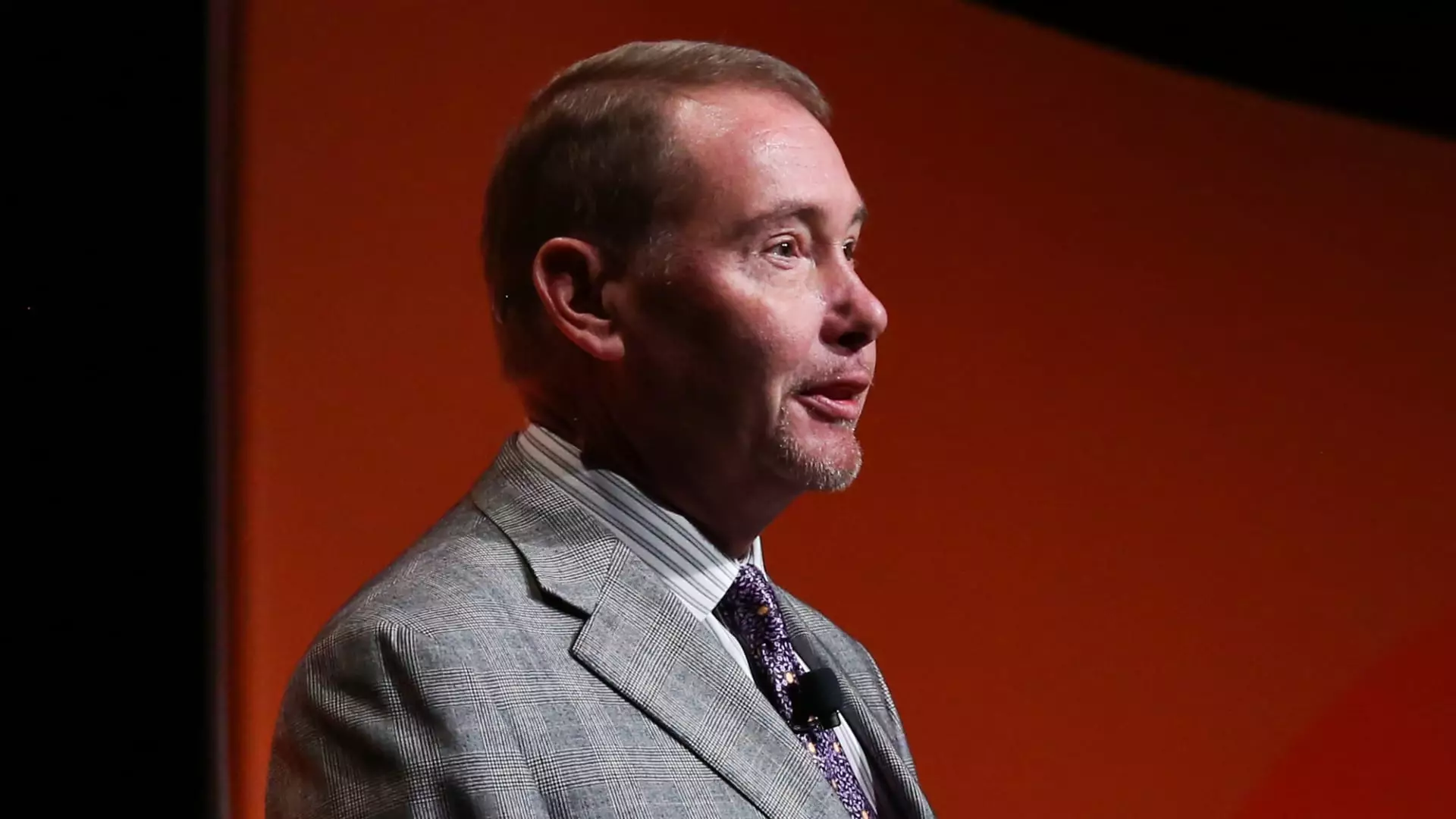In a recent investor webcast, Jeffrey Gundlach, the CEO of DoubleLine Capital, expressed concerns over the Federal Reserve’s handling of monetary policy amidst evolving economic conditions. With inflation remaining a pressing issue, Gundlach draws a comparison between the Fed’s decision-making and the comedic character Mr. Magoo—suggesting that the central bank appears to be stumbling through its mandate. Despite a systematic approach that has managed to bring inflation down, Gundlach warns that the Fed risks falling into a pattern of short-term thinking, reacting inadequately to immediate data without considering long-term strategic objectives.
Gundlach’s remarks come just before the latest consumer price index (CPI) report, which showed a month-over-month increase of 0.4% and an annual inflation rate of 2.9%. While the core CPI, excluding volatile food and energy prices, fell slightly below expectations, these figures underscore the challenges the Fed faces in meeting its aim of a stable 2% inflation rate. By pointing out the erratic nature of CPI changes, Gundlach highlights the complexities influencing the Fed’s decisions, warning that the current administration’s reactive stance may lead to inconsistent policy measures.
The financial markets have observed a palpable shift in expectations regarding the Fed’s future moves. Prior to Gundlach’s comments, there was a prevailing optimism about aggressive interest rate cuts. However, the trajectory has shifted, with market projections now leaning towards a more conservative outlook, predicting only one cut scheduled for 2025. Gundlach attributed this significant change to the Fed’s challenges in navigating inflation metrics, which has led to uncertainty and indecision in monetary policy.
Notably, since September, the Fed has implemented a full percentage point reduction in benchmark interest rates, an unusually aggressive strategy, particularly demonstrated by the half-point cut in the same month. Looking ahead, the Federal Reserve had projected two quarter-point cuts in 2025, fewer than initially anticipated. Gundlach asserts that the market’s current alignment with the Fed’s policy signals a notable deceleration in sweeping changes, which could spell trouble if economic conditions don’t stabilize.
As the Federal Reserve continues to grapple with balancing inflation targets and market expectations, investors must remain vigilant. Gundlach’s insights provide a cautious lens through which to view the central bank’s future actions. The implications of these monetary policy shifts could lead to increased volatility in financial markets, especially as the Fed weighs its options in response to persistent inflationary pressures.
The dialogue surrounding the Federal Reserve’s policies is complex and fraught with uncertainty. Gundlach emphasizes the necessity for the central bank to adopt a more strategic, long-term perspective rather than succumbing to the immediate pressures of fluctuating economic indicators. As investors await the Fed’s next moves, it will be critical to monitor these patterns and adjust strategies accordingly, given the potential impacts on market responsiveness and economic growth.

